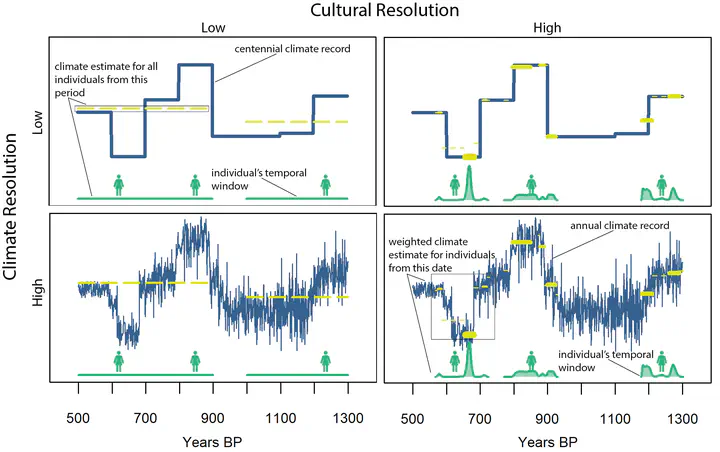Scaling the Central Andes
PI: Daniel Contreras (U Florida), Kurt Wilson (Lawrence U), Nick Gauthier (U Florida), John Krigbaum (U Florida)
 Figure by Kurt Wilson.
Figure by Kurt Wilson.Understanding the effects of climate change in the past and projecting those effects in the future faces persistent challenges of spatiotemporal scale and causal mechanisms. Past climates are rarely reconstructed at temporal and spatial scales most relevant to human experience, complicating investigation of mechanisms that link changes in climate to human consequences. Exploring the social and ecological mechanisms – e.g., diet and food production – that link climate changes and human impacts across scales is crucial for moving beyond correlation to analysis of causation, leveraging information from the past to anticipate future challenges and explore potential solutions. The Scaling the Central Andes (SCA) project is focused on developing methods that can address these multiscalar interactions between human and environmental systems using a 6000-year case study from the Central Andes, a geographically diverse region that spans environmental extremes and is a hotspot of past and future climate change. SCA addresses the challenges of:
- Scale, through a state-of-the-art generative machine learning approach that performs simultaneous downscaling and assimilation of climate models and data to reconstruct past climates on human scales, and
- Mechanism, through causal inference of the human consequences of climate change based on meta-analyses of proxies for changes in diet, subsistence, settlement, and sociopolitical connectivity for the period ~5000 BCE - 1650 CE.